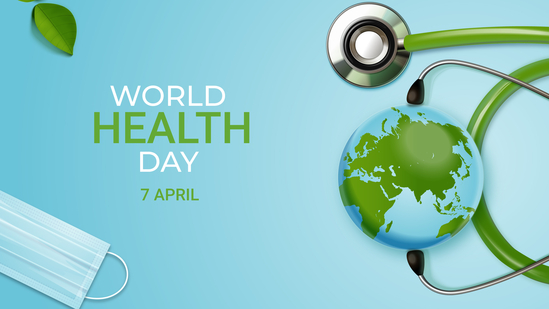Every two minutes, a woman somewhere in the world dies from complications related to pregnancy or childbirth, a United Nations (UN) report has revealed.
According to the report titled Trends in Maternal Mortality, released on World Health Day 2025, global maternal deaths dropped by 40 per cent between 2000 and 2023, largely due to improved access to essential health services.
However, progress in reducing maternal deaths has slowed drastically since 2016, with an estimated 260,000 women losing their lives in 2023 alone, that’s roughly one maternal death every two minutes.
The report further shows that pregnant women living in humanitarian emergencies face some of the highest risks globally, as nearly two-thirds of global maternal deaths occur in countries affected by fragility or conflict.
The highest risks are in Chad and the Central African Republic (one in 24), followed by Nigeria (one in 25), Somalia (one in 30), and Afghanistan (one in 40).
World Health Organisation (WHO) produced the report on behalf of the United Nations Maternal Mortality Estimation Inter-Agency Group, which includes WHO, United Nations Children’s Fund (UNICEF), United Nations Population Fund (UNFPA), the World Bank Group and the Population Division of the United Nations Department of Economic and Social Affairs.
Cuts in health aid worsening health crisis
The trends in mortality report comes at a time when cuts to humanitarian funding are seriously affecting essential health care in many parts of the world.
Massive cuts in humanitarian funding are forcing many countries to scale back essential maternal, newborn and child health services, leading to facility closures, loss of health workers and disruption of supply chains for lifesaving supplies and medicines.
The Director-General of WHO, Tedros Ghebreyesus said that while the report shows glimmers of hope, the data also highlights how dangerous pregnancy still is, in much of the world today, despite the fact that solutions exist to prevent and treat the complications that cause the vast majority of maternal deaths.
Dr Ghebreyesus emphasised the need to strengthen the underlying health and reproductive rights of women and girls in addition to ensuring access to quality maternity care.
He said, “Without urgent action, pregnant women in multiple countries will face severe repercussions, particularly those in humanitarian settings where maternal deaths are already alarmingly high.”
Similarly, the Executive Director of UNFPA, Natalia Kanem submits that access to quality maternal health services is a right, not a privilege.
“By boosting supply chains, the midwifery workforce, and the disaggregated data needed to pinpoint those most at risk, we can and must end the tragedy of preventable maternal deaths and their enormous toll on families and societies.
“We all share the urgent responsibility to build well-resourced health systems that safeguard the life of every pregnant woman and newborn,” Dr Kanem said.
COVID-19 set back maternal health gains
The trend in maternal mortality report is the first to give a global account of how the COVID-19 pandemic impacted maternal survival. In 2021, maternal deaths surged by 40,000, rising to 322,000 from 282,000 in 2020.
The upsurge was linked not only to direct complications caused by COVID-19, but also widespread interruptions to maternity services, highlighting the importance of ensuring such care during pandemics and other emergencies.
According to the Executive Director of UNICEF, Catherine Russell, global funding cuts to health services are putting more pregnant women at risk, especially in the most fragile settings, by limiting their access to essential care during pregnancy and the support they need when giving birth.
“When a mother dies in pregnancy or childbirth, her baby’s life is also at risk. Too often, both are lost to causes we know how to prevent. The world must urgently invest in midwives, nurses, and community health workers to ensure every mother and baby has a chance to survive and thrive,” Russell said.
Tinubu calls for greater investment in maternal, newborn health

On her part, Nigeria’s First Lady, Oluremi Tinubu, marked World Health Day 2025 with a powerful message highlighting the urgent need to invest in maternal and newborn health, describing it as a key pillar of sustainable development.
In a statement released on Monday by her media aide, Busola Kukoyi, Mrs Tinubu expressed concern over the disturbing reality that too many women and newborns still die every day from preventable complications during pregnancy, childbirth, and the postnatal period.
“As we commemorate the World Health Day 2025, let us all remember that investing in maternal and newborn health is not only a moral responsibility but also a fundamental cornerstone of sustainable development. Too many women and newborns lose their lives every day due to preventable complications during pregnancy, childbirth, and the postnatal period.
“No mother should have to risk her life to bring a child into the world, and no newborn should be denied a fair chance at survival. Let us all strive to create a world where mothers can give birth safely, and children can live healthy to reach their full potential,” Tinubu said.
She also commended the commitment of healthcare workers across Nigeria, recognising their tireless efforts in providing essential care and improving lives.
About WHD
The World Health Day is marked annually on 7 April to draw attention to a specific health topic of concern to people all over the world. The World Health Day 2025 campaign focuses on improving maternal and newborn health and survival with the theme “Healthy beginnings, hopeful futures”.
The campaign urges governments and the health community to ramp up efforts to end preventable maternal and newborn deaths, and to prioritise women’s longer-term health and well-being.


